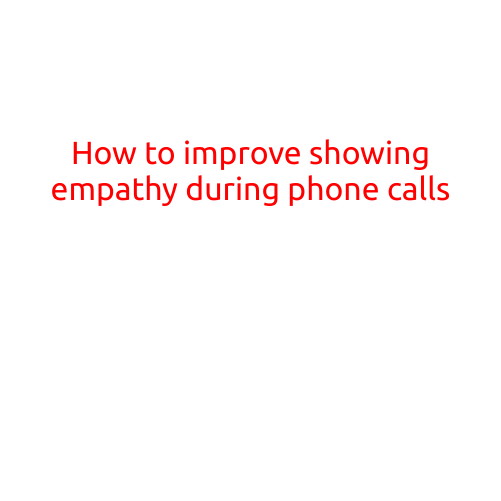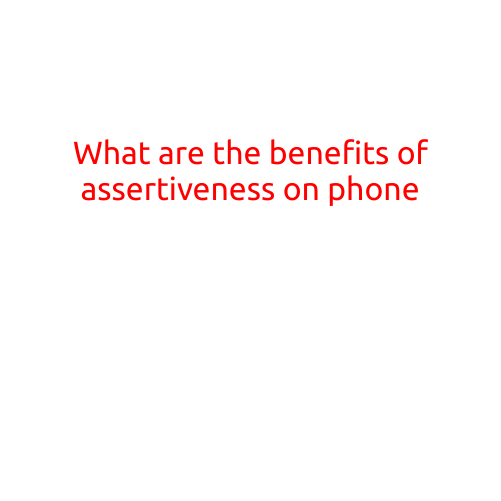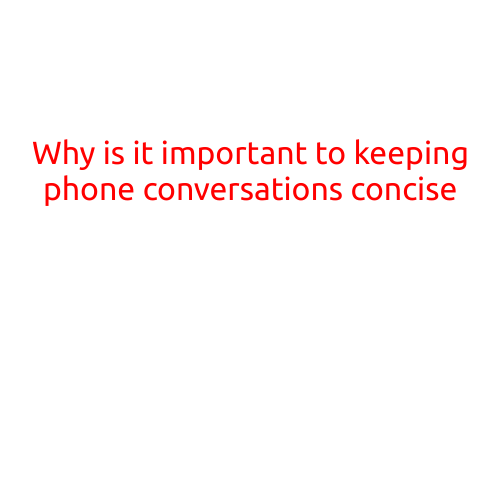
How to Improve Showing Empathy During Phone Calls
When it comes to communicating with others, face-to-face interactions are often considered the most effective way to convey empathy and understanding. However, phone calls can be just as valuable, if not more so, in building strong relationships and resolving issues. Effective phone calls require more than just clear communication – they also demand a deep understanding of the other person’s perspective. In this article, we will explore the ways to improve showing empathy during phone calls.
Active Listening
Active listening is the foundation of empathetic communication. When speaking with someone over the phone, it’s easy to get distracted by other tasks or mentally preparing your response. However, to truly show empathy, you must focus on what the other person is saying. Practice active listening by:
- Giving the speaker your undivided attention
- Avoiding interruptions and let the speaker finish their thoughts
- Repeating back what you’ve understood to ensure you’re on the same page
- Asking open-ended questions to encourage the speaker to share more
Use Nonverbal Cues
Nonverbal cues can convey empathy even when you’re not in the same physical space. Use:
- A gentle tone of voice to show concern and understanding
- Facial expressions, even though the person can’t see you, can still convey empathy through your voice
- Pauses or moments of silence to allow the speaker to collect their thoughts
- A calm and gentle laughter to diffuse tension
Verbal Affirmations
Verbal affirmations can go a long way in showing empathy during phone calls. When speaking with the person, use phrases such as:
- “I understand how you feel”
- “That sounds really tough”
- “I can imagine how frustrating that must be”
- “I’m here to listen and support you”
Show Empathy Through Questions
Asking the right questions can demonstrate your willingness to understand and empathize with the person’s situation. Use:
- “What was going through your mind when this happened?”
- “How did this affect you?”
- “What do you think is the root cause of this issue?”
- “What can I do to support you in this situation?”
Provide Solutions and Acknowledge Emotions
When someone is struggling, they often need guidance and reassurance. Provide solutions and acknowledge their emotions by:
- Offering resources or recommendations to help them resolve the issue
- Acknowledging their feelings and validating their emotions
- Showing empathy and understanding through your words and tone
Practice Role-Playing
To improve your empathy skills during phone calls, practice role-playing scenarios with friends, family members, or colleagues. This will help you develop your active listening, verbal affirmations, and question-asking skills.
Conclusion
Showing empathy during phone calls requires more than just technical skills – it demands a genuine interest in understanding the other person’s perspective. By using active listening, nonverbal cues, verbal affirmations, and showing empathy through questions, you can build trust, resolve issues, and strengthen relationships. Remember that practice makes perfect, so don’t be afraid to role-play and hone your empathetic communication skills.





